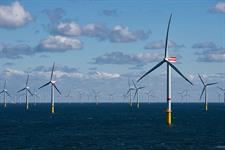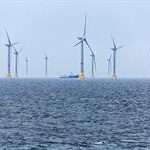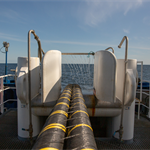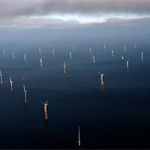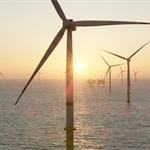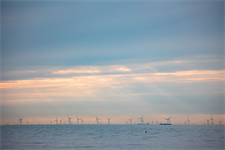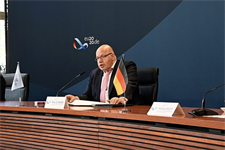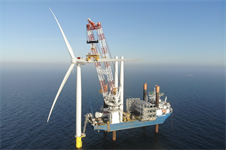Alarms raised on German offshore wind ‘entrance fees’
Energy Disrupter
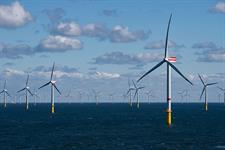
Investors looking to build offshore wind power installations will have to pay for the privilege while being expected to absorb substantial risks such as fluctuating prices and potential changes in regulations across Europe, draft bill papers reveal.
The German economy ministry proposed the amendment to the offshore wind law (known as WindSeeG) to introduce a second bid component to assess competing entries all offering to build offshore wind farms without support.
Under economy minister Peter Altmaier’s plan, if multiple bids to build offshore wind farms without subsidy are competing in an auction, a second stage will be added asking developers to state how much they are willing to pay for their project to be successful. Those who pay the most will ultimately win, according to Handelsblatt.
The industry has slammed this “entry fee”, arguing that it will lead to increase risk and costs for developers, pushing smaller players and municipal utilities out of the market.
The economy ministry claims that the “dynamic bid mechanism” means the “economically strongest bid” wins the tender and helps identify an additional “willingness to pay” on the part of the operator, which can then be used to expand offshore transmission and, ultimately, lower the price for consumers.
However, the country’s offshore wind sector has warned it could have far-reaching consequences for the energy transition.
Price fluctuations
Germany’s commitment to phasing out fossil fuels and nuclear power in favour of renewable sources means structural changes have to be made across the energy sector, which will in turn lead to fluctuations in electricity prices, according to the association of German offshore wind farm operators, the BWO.
“Our investors have a problem because they cannot predict what changes are coming and how they will come, and therefore they cannot predict the market prices, said BWO managing director Stefan Thimm.
“What our government does is pass all the risks on to our investors, even the risk of regulatory changes. This leads to significant costs in financing renewable energies,” he added.
The BWO, along with German offshore-wind industry group WAB and German wind energy association BWE, has been calling for the introduction of contracts for difference (CfD) as a tendering model for offshore wind projects, as is used in the UK, France and Denmark, as the mechanism that would work best while guaranteeing low and stable electricity costs.
“When financing renewable energy plans without a CfD, the costs are 30% higher than with a CfD,” Thimm said.
This was echoed in a letter sent to Altmaier when the minister first proposed the changes in June, signed by major offshore players including developers Ørsted, Vattenfall and RWE and leading turbine supplier Siemens Gamesa.
The letter, seen by Windpower Monthly, expressed concern about the proposed second bid differentiator and said it sent the “wrong signal”, while a CfD model would ensure both continuing growth for renewable energy capacity and internationally competitive electricity prices.
Fewer bidders, more uncertainty
The BWO believes the economy ministry’s proposed amendment could change the types of investors that are bidding, since smaller players such as municipal utilities may not be in a positon to take part.
“It would be very, very difficult because of the higher risks,” Thimm added.
“When you take part in the auction, when you decide what price you need to realise your project, you always make your calculation on a basis of an expected, regulatory framework.”
Once an auction is won, it can easily take another five tears to realise a project. Before signing a final investment decision (FID) investors will check if the expected regulatory framework is on track.
Thimm said: “If it is not, then investors will reconsider whether to realise the project. This is the risk of the system that our government is now trying to implement — that the realisation rate of the auctions would decrease.”
Germany’s coastal states hosting offshore projects are equally unhappy about the plan. “The federal economy ministry’s proposal does not fit into the European system. We should switch to the CfD system, which has proven itself to be efficient and successful,” Lower Saxony’s SPD environment and energy minister Olaf Lies told Handelsblatt.
“A reduction in the pool of bidders — which I think the suggested second bid component would trigger — ultimately makes everything more expensive for everyone. The second component will frighten off investors, Lies added. “Germany would lose when it comes to competing for projects. As a result, renewable energy capacity targets would be at risk.”
It remains unclear whether the potential new legislation will be implemented, since such a move not only relies on the German government, but also its European neigbours and the European Commission. The German parliament is due to vote on the amendment at the end of September.
“You cannot predict these decisions,” Thimm said.
“The politics change the revenue of the market. For example if the C02 prices decrease then the revenues of the market will be smaller than expected for our companies.
In July, German wind industry groups called for stable framework conditions to speed up project tendering and contracts for differences.
Just 219MW of offshore wind capacity was commissioned in the first half of 2020 – including EnBW’s 112MW Albatros project.

